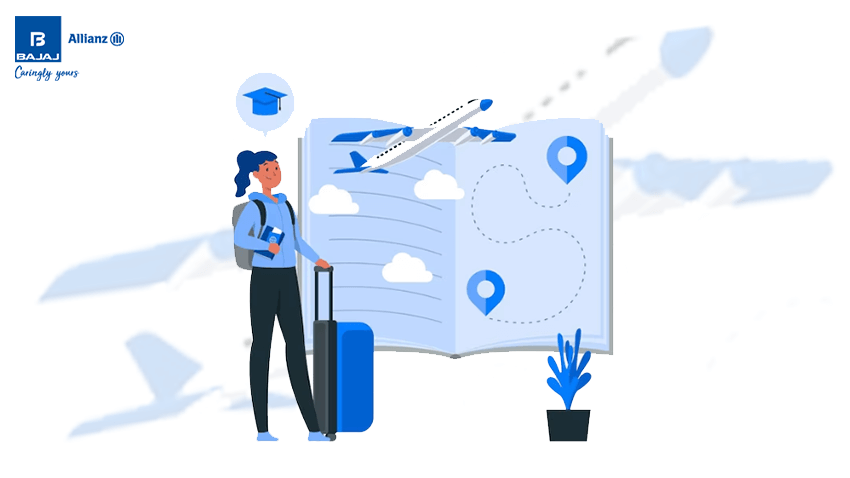The journey to study abroad is an exciting adventure filled with promise and opportunities for personal and academic growth. However, amidst the excitement, the process of obtaining a student visa can seem daunting. Fear not! We're here to demystify the process and address some of the most frequently asked questions about student visas.
Understanding Student Visas
Before delving into the FAQs, let's briefly understand what a student visa is. A student visa is a special permission granted by a foreign country to allow you to enter and stay there for the purpose of studying. It's a crucial document for students who want to pursue education in another country. With a student visa, you're legally allowed to enrol in educational programs, attend classes, and reside in the host country for the duration of your studies. It's a gateway to experiencing new cultures, gaining academic knowledge, and expanding your horizons. Without a student visa, you may not be permitted to study abroad. So, it's essential to understand the requirements and follow the application process carefully to obtain this important document.
FAQs: Your Burning Questions Answered
1.Can I apply for a study visa before receiving an acceptance letter?
It's advisable to wait until you receive an acceptance letter from an educational institution before applying for a study visa. The acceptance letter confirms your enrollment in a study program and is a fundamental requirement for the visa application process.
2. How much financial support do I need to demonstrate?
The required amount of financial support varies by country and institution. It's essential to research the specific financial requirements for your chosen destination. You must demonstrate that you have enough funds to cover tuition fees, living expenses, and other costs during your study period.
3. What should I include in my Statement of Purpose (SOP)?
Your Statement of Purpose (SOP) is a crucial part of your visa application. It should discuss your educational background, future goals, reasons for studying abroad, and how the chosen program aligns with your aspirations. Be honest, concise, and articulate your passion for your chosen field of study.
4. Is health insurance mandatory for a study visa?
Yes, most countries require proof of
comprehensive health insurance coverage for the duration of your study abroad. This ensures that you have access to medical care and assistance in case of any health-related emergencies during your stay abroad.
5. How do I prove my language proficiency?
Language proficiency is typically demonstrated through test scores from recognised language exams such as IELTS or TOEFL. Make sure to check the language requirements of your chosen institution and destination country and plan accordingly.
6. Can I work part-time while on a study visa?
Many countries allow international students to work part-time during their studies, but there are usually limitations and regulations to consider. Before seeking employment, familiarise yourself with the work restrictions and eligibility criteria outlined by your host country's immigration authorities.
7. Can I apply for a study visa after arriving in the host country?
Typically, you must apply for a study visa before entering the host country.
Applying for a visa after arrival may not be allowed and could result in legal consequences. It's important to check the visa regulations of your chosen destination and plan accordingly to avoid any complications.
8. How long does it take to process a student visa application?
The processing time for a student visa application varies depending on the country and specific circumstances. It can range from a few weeks to several months. Factors such as the volume of applications, the complexity of your case, and any additional requirements can influence the processing time. It's advisable to apply for your student visa well in advance of your intended travel date to allow for sufficient processing time and avoid any last-minute delays.
Understanding the Student Visa Interview
One of the crucial steps in the student visa application process is the visa interview. Here are some visa interview tips to help you prepare:
- Be familiar with your visa application and supporting documents.
- Practice answering common visa interview questions.
- Dress appropriately and present yourself professionally.
- Be honest and concise in your responses.
- Stay calm and composed during the interview.
Also Read - Visa vs Passport: Unraveling the Distinct Roles
Tips for Student Visa Interview
Dealing with Rejections
Receiving a student visa rejection can be disheartening, but don't lose hope. Take the time to understand the reason(s) for the rejection and address any deficiencies in your application. You may consider reapplying with stronger supporting documents or seeking assistance from a visa consultant or immigration lawyer.
Ensuring Travel Insurance
Before jetting off to your study destination, don't forget to secure travel insurance from Bajaj Allianz General Insurance Company.
Student travel insurance online provides coverage for medical emergencies,
trip cancellations,
lost luggage, and other unforeseen circumstances. Compare different
travel insurance plans online to find one that best suits your needs and budget.
Conclusion: Your Global Educational Journey Awaits
Obtaining a student visa is a crucial step toward realising your dream of studying abroad. By
understanding the visa requirements, preparing diligently, and seeking assistance when needed, you can manage the process with confidence. Remember, your global educational journey is about more than just academics—it's an opportunity for personal growth, cultural immersion, and lifelong memories. So pack your bags, seize the opportunity, and embark on this transformative adventure with enthusiasm and determination!
Also Read - A Guide To Effortless Visa Status Verification
*Standard T&C apply
Insurance is the subject matter of solicitation. For more details on benefits, exclusions, limitations, terms, and conditions, please read the sales brochure/policy wording carefully before concluding a sale.
 Service Chat:
Service Chat: 

